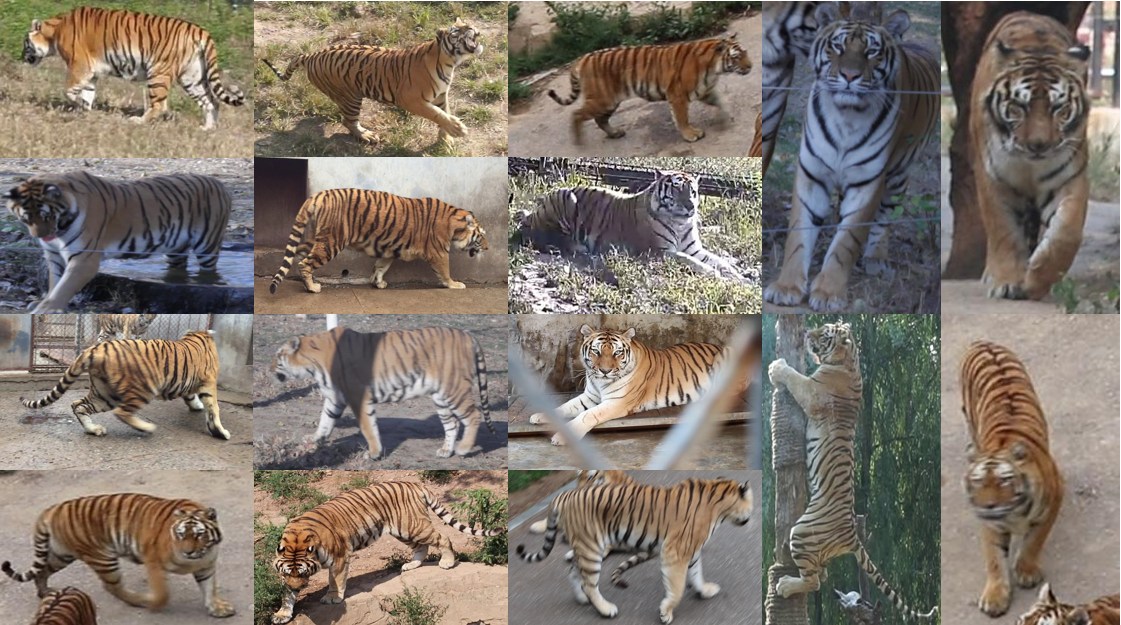Recently, the results of Amur Tiger Re-identification Competition of International Conference on Computer Vision (ICCV 2019 CVWC Workshop ) were announced. The team of our university, guided by Professor Wang Peng of School of Computer Science and mainly composed of undergraduates Yu Jiwen, Liu Junnan, Yang Zhizheng, Zhang Zhouzi and Zhu Yixin in grade 2017, and junior postgraduates Su Haibo, Yang Lu and Jiao Bingliang, won the 3rd prize in the re-identification task of Amur Tiger and was invited to participate in ICCV 2019 CVWC workshop after a month-long fierce competition with teams universities worldwide including Chinese Academy of Sciences, Tianjin University, the University of Notre Dame and Arizona State University.
ICCV is the abbreviation of International Conference on Computer Vision, which is considered, together with Conference on Computer Vision and Pattern Recognition (CVPR) and European Conference on Computer Vision (ECCV) the three top level conferences of computer vision. It has been rated as the top conference by China Computer Federation and other organizations, and enjoys a very high evaluation in the industry. This competition sponsored by ICCV CVWC aims to protect endangered wildlife through computer vision.With the help of WWF, the organizers produced the ATRW (Amur Tiger Re-identification in the Wild) dataset by collecting 8,000 video clips of 92 Amur tigers from about 10 zoos in China.Researchers are required to identify tigers in different scenes and lights, and of different poses with few images.

Sample of Task Images of ATRW Dataset Plain ReID

* Full list is available at https://cvwc2019. Github.io/leaderboard.html
ICCV 2019 CVWC Rankings
In addition, it is reported that Professor Wang Peng has led undergraduate or junior graduate students to participate in a number of domestic and international artificial intelligence competitions since 2019, and achieved excellent results (see attached table).In artificial intelligence teaching, Professor Wang Peng's team has initially constructed a set of training mechanism for undergraduate and junior graduate.Under the mechanism, the basic theory courses of artificial intelligence such as computer vision and in-depth learning are set up for the undergraduate students to help students develop a more systematic understanding about the basic knowledge of artificial intelligence.Furthermore, combined with the computational resources of the National Engineering Laboratory of Big Data Application Technology Integrated Space, Sky, Earth and Sea, it provides practical opportunities for students who can spare no effort in their studies and participates in various artificial intelligence competitions.By participating in the competition, students can fully understand the mainstream algorithm and practice, familiar with the physical meaning of each super-parameter in the code and adjust parameters according to the actual situation of the task.This is not only the first step in the introductory scientific research, but also a good foundation for students' future development in scientific research.Through the training under such a mechanism, students can be more quickly qualified for more innovative and challenging scientific research works.
Attached herewith is a summary of recent prizes won by the students of School of Computer Science under the guidance of Professor Wang Peng in domestic and international artificial intelligence competitions:
